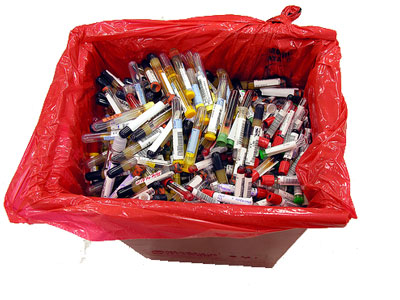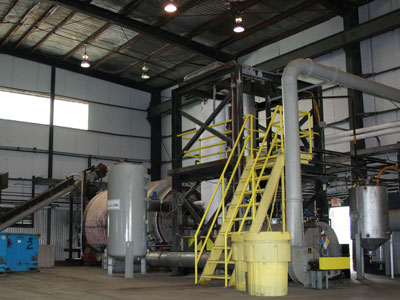Health care activities require a wide assortment of materials to remain operation. These range from syringes, needles, radioactive materials, chemicals, pharmaceuticals and soiled dressings among many others. The amount of waste generated in a busy clinic is ginormous, meaning proper disposal for the same is required. Unlike other forms of waste, medical waste needs to be treated with care, as poor disposal of the same can have many adverse effects on the environment, community, waste handlers and the patients as well. This is the reason why most of these wastes have to be recycled for reuse, while un-recyclable ones are disposed of properly.
Why Should Medical Waste Be Recycled?(Related Recommended medical waste pyrolysis plant)Some of the reasons why medical waste needs to be recycled include:
To Protect Natural Resources And Avoid Environmental Hazards
Most of the medical materials used are made of chemicals and radioactive materials, which can have devastating effects on the environment if left, exposed. The worst-case scenario here is if these radioactive materials mix with rainwater and are washed down the river, then the result would be catastrophic for living organisms in the same. This would contaminate the water; leave alone the environment, meaning our water supply would be contaminated thus become unusable. Radioactive materials are also known have adverse effects on living organisms. Recycling these products however eliminates these risks thus protecting the environment. You can get more info about medical waste pyrolysis plants for sale here.
Reduces Demand For Raw Materials
Syringes, pharmaceutical containers, and test tubes are all recyclable. Syringes and needles can be recycled through sterilization, a process that kills any germs and removes any form of dirt on the same, thus making them safe for reuse. Recycling companies collect these needles and syringes, where they melt them to make new ones using the same material. The same process is done on pharmaceuticals, glass containers and everything else that can be recycled. This reduces demand for raw materials by a whopping 85%.
Containing Infectious Diseases
Consider a scenario where a patient suffering from an infectious condition, e.g. TB, has been tested and materials used to test the same aren’t disposed properly. If any of these materials are exposed to other people, then chances are these people will contract TB. The same would happen with other infectious diseases, and most specifically airborne communicable diseases. To contain this, these materials are kept in labeled litter bins, which recycling plants for medical waste take to sterilize then recycle the testing materials once again. This cycle goes on and on, meaning very few raw materials will be needed to produce such products. This also facilitates containment of greenhouse gasses that are a significant threat to the ozone layer.
Cost efficiency
Most medical centers handle waste recycling on-site. These centers have invested in state of the art equipment that helps recycle such waste materials such as test tubes, test glass, syringes and other materials. By recycling these materials on-site, the medical centers get to save big on the same. The cost of recycling these materials is much cheaper than when the medical waste has to be transported to where a designated disposal is.
Medical waste recycling system not only saves on natural resources, but also safeguards the environment from pollution that could be caused by the same. More info you can check this site http://waste-pyrolysis-plant.com.

